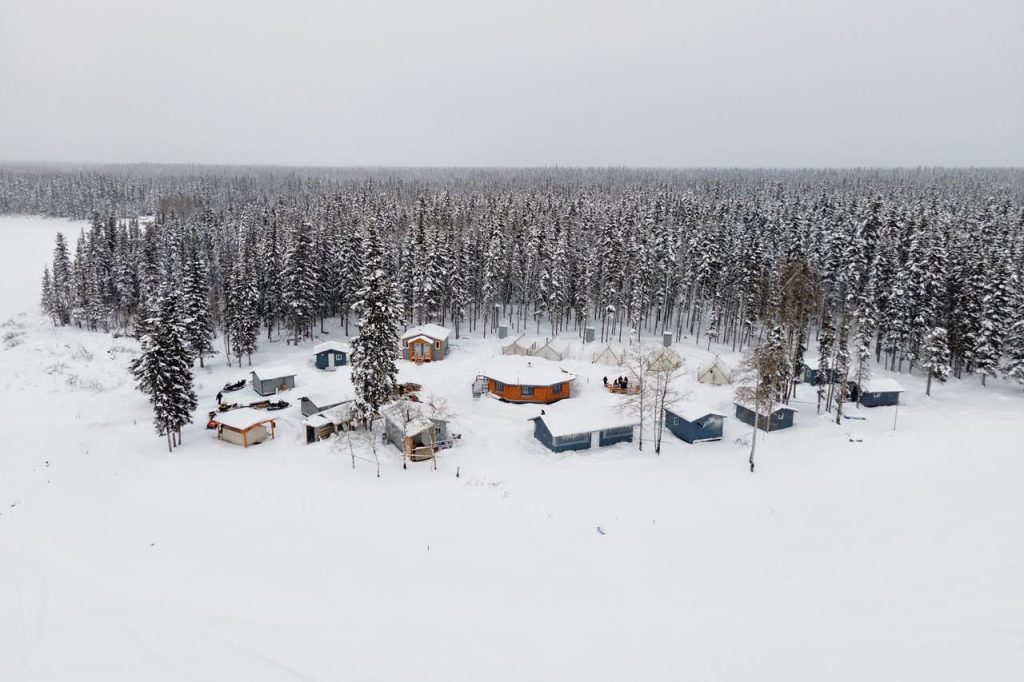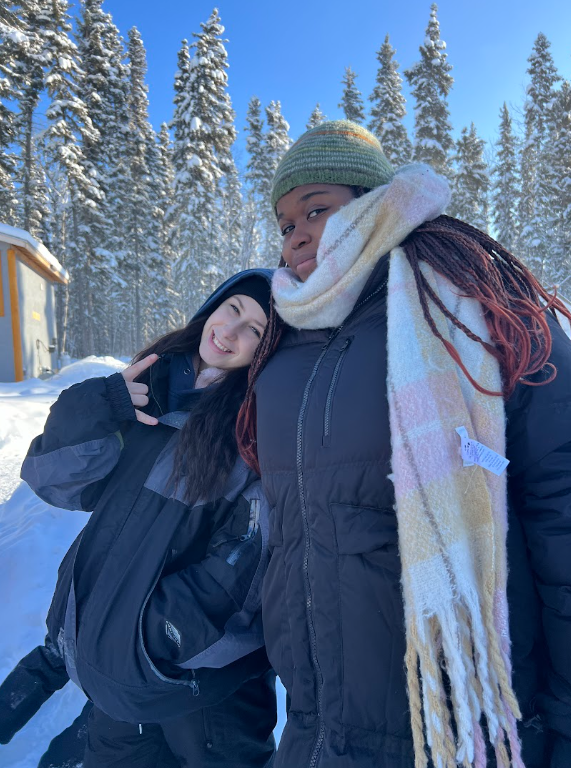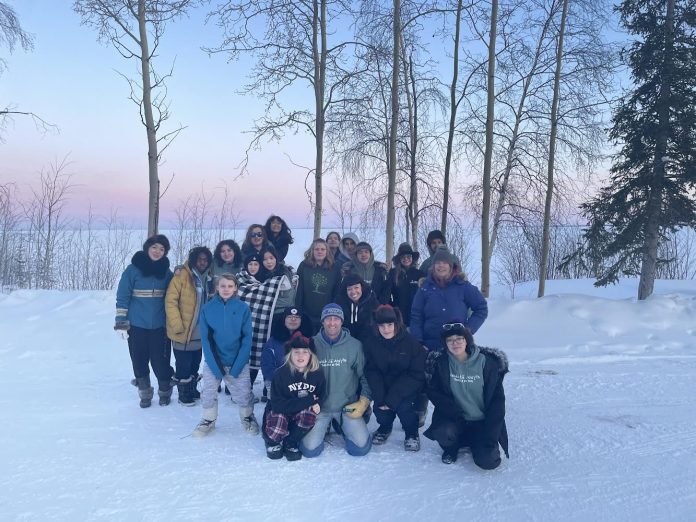By Marie- Christiane Mundwer
Feb. 10, 2023 will go down as one of the most anticipated days of my life. That afternoon, 10 students and two teachers from Notre Dame High School started their journey to a Dene Healing Camp in Fort Providence, N.W.T. to learn about reconciliation and live on the land for a week.
Ontario and Northwest Territories are geographically and socially different places: I externally knew that there was going to be a significant shift in my way of living for seven days and that I should be nervous and stressed about no showers for the week, no cell service, none-to-limited electricity. But internally, I was calm; something inside told me to just go with the flow.
Before we started we had all joined for different reasons: to learn our own culture, to learn more about this Indigenous culture with its different cultures within, to explore beyond Ontario, how to live and survive off the land, or to have a stronger connection with nature.
Whatever our reasons, we all shared the commitment we had to the reconciliation process between Canada and Indigenous communities. We recognized that we are the next generation to make a difference, to right the wrongs of the past. That we can help build an inclusive future side by side with Indigenous people by Indigenous people.

Our trip was organized by Northern Youth Abroad and Northern Loco, an Indigenous-owned company in Fort Providence, on the Mackenzie River just west of Great Slave Lake. Its mission is to help the community strengthen its economic opportunities. Northern Youth Abroad is a registered non-profit organization. Its mission is to bring cross-cultural awareness, leadership skills, and international citizenship to youth from Nunavut and NorthWest Territories. They aim to help break the barriers of intergenerational trauma.
Before meeting with Indigenous youths, I had preconceived notions about them. I assumed that young people in the North were isolated and unaware of the pop culture around us southerners – like music and clothing. That was not the case at all.
They knew all the stores and where to get cute tops from online. They listened to the same music you hear blasting in any teenager’s car or on a bike. They knew pop-culture references, too. I felt ashamed for my preconceptions, but grateful for removing them.
The days at Fort Providence were long, but filled with laughter and learning. We had guest speakers from all over Canada talking about reconciliation, love of community, and the strength within ourselves. Elders gave us their life testimonies. Days were jam-packed with ice fishing, collecting firewood for heating our cabins and tents, making beaver hats, and learning Dene hand games and drumming. And by night, everyone was at the bonfire, singing our hearts out.
It was personally valuable to learn that together as one, we can work to make our communities, our nation, and our world a better place. It was learning without structure, learning without specific time periods. Fort Providence has its place in my heart, and will never be forgotten.

